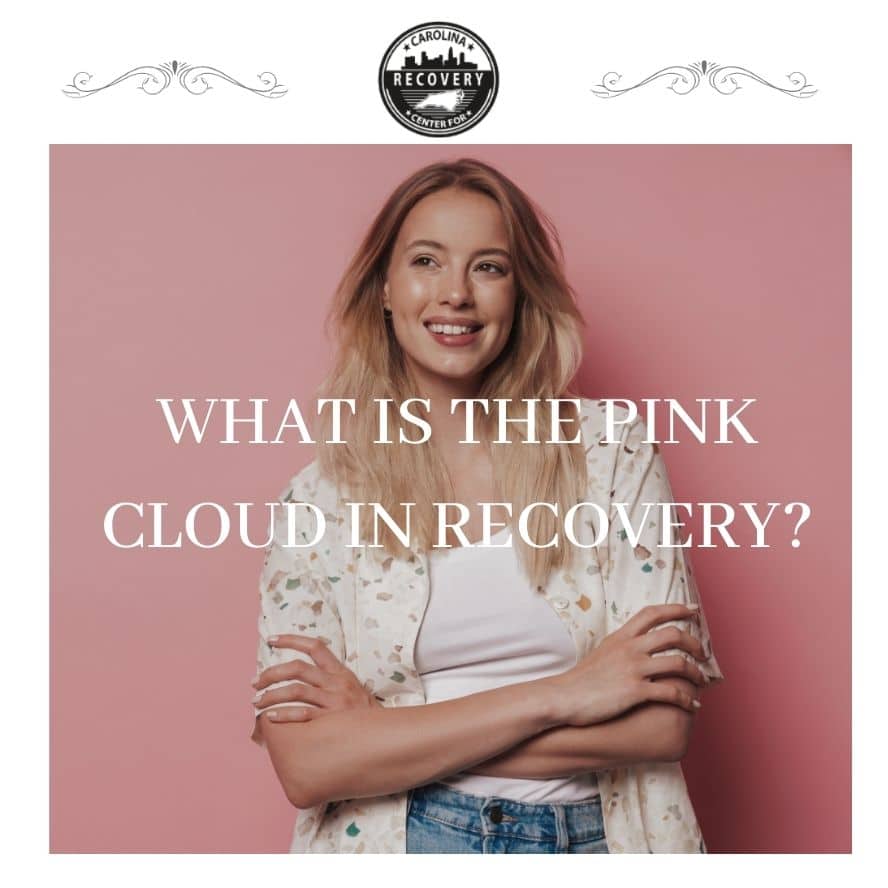What is the Pink Cloud in Recovery?

Medically Verified: 2/1/24
Medical Reviewer
Chief Editor

All of the information on this page has been reviewed and verified by a certified addiction professional.
When you finish an addiction treatment program and overcome the early hurdles of sobriety, you might begin to feel like you can accomplish anything. While celebration is warranted for all of your hard work, sometimes you can become too confident. Many people experience something known as “pink cloud syndrome.”
Once you have overcome withdrawals, learned how to cope with some triggers, and begun living independently, you might experience your own pink cloud. Pink cloud syndrome is characterized by feeling successful, overconfident, and even euphoric about your ability to remain sober. Sometimes, pink cloud syndrome causes people to be so overconfident that they forget to continue practicing the things they need to maintain sobriety.
What is Pink Cloud Syndrome?
Pink cloud syndrome is common among people in early recovery, especially if you are getting close to that one-year mark. Also referred to as the honeymoon stage, pink cloud syndrome is similar to that feeling you get when you are in the early stages of a relationship. You may feel like everything is going great, you are incredibly happy and ready to take on the world.
While having confidence in your sobriety is not a bad thing, sometimes pink cloud syndrome can make it difficult to identify whether you are struggling with any problems that should be addressed. Instead of continuing to improve on your recovery, you might become stagnant and stop going to meetings or therapy because you feel good at the moment.
Even further, pink cloud syndrome will not last forever. Once this feeling wears off, you might begin to feel down, defeated, or depressed. This can be incredibly dangerous, as negative emotions are common triggers for substance abuse and relapse.
Signs of Pink Cloud Syndrome
Sometimes it can be difficult to recognize pink cloud syndrome in yourself, making it vital that you are aware of the signs of this phenomenon.
The signs of pink cloud syndrome include:
- Being extremely optimistic about your sobriety and the future
- Only focusing on the positive aspects of addiction recovery
- Being overly confident in your ability to maintain your sobriety
- Continuously overlooking the hard work required to maintain long-term sobriety
- Deciding that you do not need to engage in certain recovery maintenance techniques because you are currently doing well
Some people feel that pink cloud syndrome is a good thing. It can certainly help you overcome some hurdles in early recovery by allowing you to stay positive. However, it can also give you the permission you need to slack on your recovery maintenance techniques, putting you at risk of relapsing.
What are the Risks of Pink Cloud Syndrome?
One of the most concerning risks of pink cloud syndrome is having unrealistic expectations for sobriety. Oftentimes, people who have experienced pink cloud syndrome equate the feelings to being high. And since the feelings caused by pink cloud syndrome will eventually go away, you could feel like you are mourning a high all over again.
When pink cloud syndrome is over, you will have to be prepared to engage in some hard work to keep up with your sobriety. This can be difficult when you lose the euphoric feelings that pink cloud syndrome causes.
Other risks include:
- Believing that recovery is easy
- Feeling like you can stop treatment because you have “overcome your addiction”
- Ignoring the challenges of real life
- Believing that you are secure in your recovery even though you still have some work to do
- Experiencing disappointment and depression when the pink cloud wears off
How to Avoid a Relapse
When your pink cloud syndrome wears off, you might feel extra down or even severely depressed. This could cause you to fantasize about using drugs or alcohol to numb your emotions. As a result, using your relapse prevention plan is extremely important.
Relapse prevention plans include strategies and supportive services that can help you stay sober in times of need. If you have not created one yet, here are some ideas of what you should to do prevent a relapse:
- Double down on your therapy appointments
- Contact your 12-step sponsor or a sober support
- Attend more recovery meetings
- Go to alumni support groups to feel a sense of community
- Engage in self-care activities like yoga, meditation, or massage therapy
- Spend time with your family or friends
- Make a healthy routine that involves exercise, a good sleep routine, and time to do an activity that makes you happy
If you relapse, you must consider going back to rehab. While returning to rehab after a relapse can feel like a failure, it can be the push you need to maintain long-term recovery in the future.
Find Help for Drug Addiction and Alcoholism
If you or a loved one suffer from drug or alcohol abuse, it’s time to seek professional help. Whether you have never been to treatment before or you are coming back after a relapse, Caroline Center for Recovery is here to help.
To learn more about our drug addiction and alcoholism treatment programs, contact us today.

